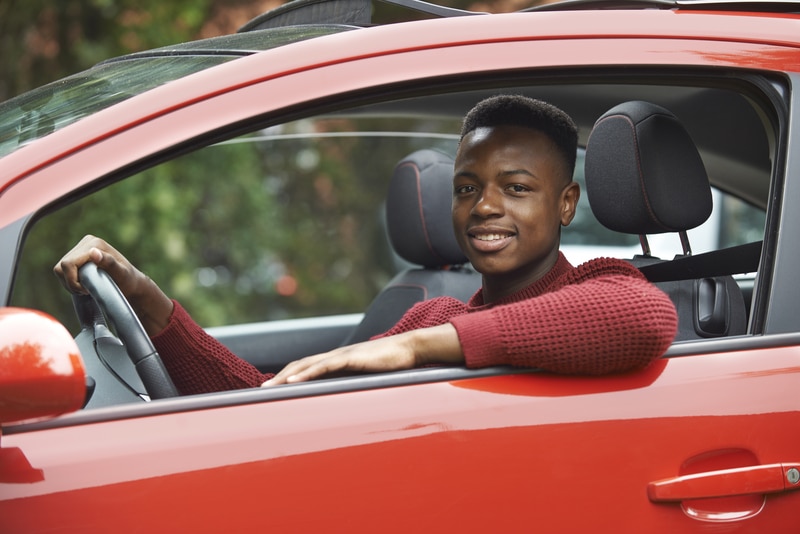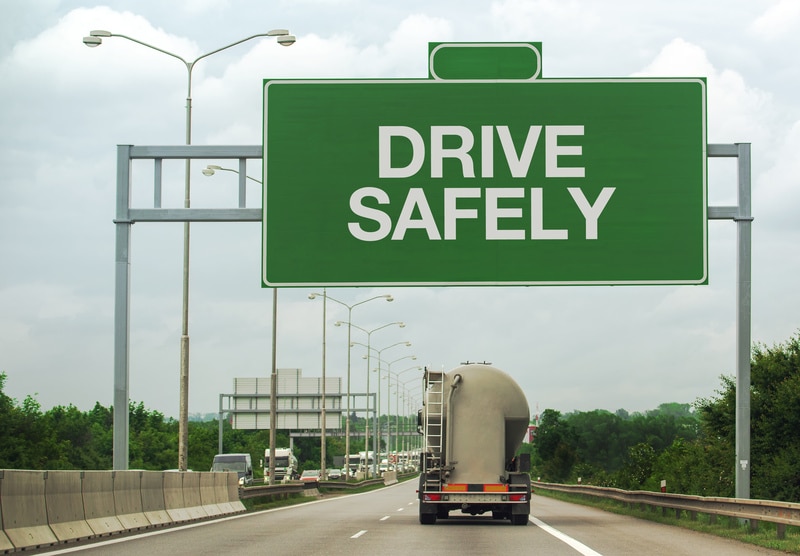Safe Driving For Teens: What To Tell Your Kid When They First Hit The Road

Kids grow up so fast. It seems like yesterday that they were still riding around your yard on their tricycle. Now, they have a drivers license and are eager to hit the road. It is obviously a good thing that your child is becoming more independent, but they are still vulnerable at their young age. They may still not fully comprehend the dangers of the road because they have never been involved in a crash before.
How do you get your teenager ready for solo driving? Mentioning the things in this article will certainly help.
How Big Is This Problem? Do I Need to Be Worried?
How prevalent are accidents involving teenagers? If you have not explored that topic before, you may be surprised by what you find. According to the CDC, around eight teenage deaths related to motor vehicle crashes were recorded daily in the United States in 2020. Going by those numbers, the threat of accidents for teenage drivers is by no means exaggerated.
There are also certain risk factors that we need to highlight. First, the death rates are higher for male teenagers behind the wheel. Per Zero Deaths Maryland, 56% of young drivers involved in vehicular accidents were male. Young men also accounted for more than 75% of the deaths recorded from those accidents.
Summer also seems to be a dangerous time for teenage drivers. For example, 34% of those crashes involving young drivers took place during that time of the year. We know these numbers are terrifying, but you must fully grasp them to understand what teenage driving entails. You should also communicate these bits of information to your kids so they can internalize how important it is to be responsible while driving in and around Maryland.
What Are Some of the Causes of These Accidents?
It is unfortunate, but accidents involving teenage drivers are fairly common. To better understand why accidents involving young drivers happen so often, we need to take a closer look at their common causes.
Lack of Experience
What is the main difference between an adult and a teenage driver? The answer is, undoubtedly, experience. The CDC article from earlier even mentions this. Crash risk becomes elevated for teenagers who were licensed recently. A lack of experience may be why your child reacted incorrectly while facing an imminent threat. While panicking, they may have also stepped on the wrong pedal because that action is not second nature to them yet. Experience matters on the road, and those lacking in that department are more vulnerable.
Drunk Driving
Drunk driving is irresponsible, no matter your age. However, studies have shown that alcohol impairs teenage drivers even more. Make it a point to warn your kid about drunk driving. Let them know the punishment they will get for that behavior will be greater than anything you handed down previously.
Distracted Driving
Your child likely grew up in the age of smartphones and tablets. They are used to fiddling around with their device at all times, so they may struggle to drop the habit while driving. This is something you should keep an eye out for when driving around with your teenager. Encourage them to put their phone away or at least dial back their usage to playing music whenever they are behind the wheel.
Reckless Driving
Kids may sometimes exhibit poor judgment while in the company of their friends. Whether we like it or not, peer pressure has a greater effect on teenagers. Peer pressure may eventually lead to speeding, driving without a seatbelt, and other examples of reckless behavior. If that continues, it may only be a matter of time before an accident occurs.
Safe Driving Tips: What You Can Do to Help Your Kids
The dangers of the road are real for teenage drivers. So, what can you do to protect your kid from getting their first taste of driving? Following the tips detailed in this section of the article will surely help.
Set a Good Example
Kids turn to parental figures for guidance. They may sometimes do it unconsciously, but it does happen. When you are driving, ensure you do so safely. Wear your seatbelt, keep your speed under control, and follow all the road rules. Remember to also limit your smartphone usage while you are driving.
Show your kid that driving responsibly is easy. They will be more inclined to drive that way after they see you do it consistently.
Alter Your Car’s Driver Settings if Necessary
Is your kid still driving your car? Does it seem like they have a tough time pulling off basic driving maneuvers? If you answered yes to both questions, a persistent issue might be putting your child at risk. More specifically, your child may be struggling because the driver settings fit you instead of them.
Make the necessary changes so your child can get comfortable in the driver’s seat. Keep up that habit until your child is driving their own car.
Give Your Child a Newer Car
Now that your child has their driver’s license, you may consider getting them a car. When it comes to choosing the right car for your child, it is highly recommended to prioritize newer models. Newer cars come with updated safety features that can help protect your child in the event of an accident. Some newer cars even come with state-of-the-art collision prevention technology.
Although getting a newer car is more expensive than other options, it could be key to keeping your child safe on the road.
Have a Frank Discussion about Alcohol and Drunk Driving
The teenage years are turbulent times for everyone. These are the days when we are probably most susceptible to peer pressure. Someone tells you to try a drink, and you give in because you do not want to kill the mood.
Consuming alcohol is a no-no for teenagers in Maryland. Driving under the influence of alcohol as a teenager is a potentially life-altering mistake.
Without your guidance, do not let your child deal with all those difficult topics. Instead, talk with them and be honest about alcohol and drunk driving.
Remind them that Maryland has a zero-tolerance policy. Mention the fact that their license could be suspended if they hit the road while they are intoxicated. Tell them about the consequences of drunk driving so they can better understand why they need to avoid alcohol at all costs.
Urge Your Child to Wake Up Early if They Are Driving to School
Your child’s smartphone is not the only thing that can distract them while driving. Because they are in a rush, they may also eat breakfast on the way to school.
Eating while driving may not seem that dangerous, but it can disrupt your child’s concentration. They may lose sight of their surroundings while biting into their sandwich or drinking. By the time they can look around, another vehicle may be closing in on them.
Discourage your child from eating while driving and remind them it is dangerous. Tell them to set an alarm to get up early and have breakfast before hitting the road.
Set a Driving Curfew
The experience of driving at night is different from daytime driving. At night, roads are often populated by more trucks rushing to make deliveries. Some drivers also tend to become more reckless under the cover of night.
You may not want to restrict your child from heading out at night, but you should at least consider setting a driving curfew. Until they have more experience, impose a curfew to keep them off the road when it is dark out.
Establishing a curfew for your child’s driving privileges will likely mean you must pick them up when they are out late. Still, that is preferable to having your teenager navigate the significantly more dangerous nighttime roads.
Teach Your Child to Recognize the Symptoms of Car Problems
Unless your child was already a big fan of cars growing up, chances are they do not know a lot about vehicle troubles. They may notice something odd about their car but ignore it because they need to get somewhere quickly.
As a parent, you need to teach your child about the symptoms of car problems so they can stop driving before something seriously goes wrong.
Let them know that the smell of fuel does not belong inside the car. You should also mention that the steering wheel should not vibrate even if the car is in motion. Finally, mention that leaks and noisy brakes are also signs of trouble.
Tell your child to call you if they notice anything off while driving. Then, handle those car troubles yourself and keep your teenager safe.
Maryland Car Accident Lawyer
Maryland car accident lawyer John Leppler has been handling car accident cases in Baltimore City and Baltimore County for over 8 years, and his expertise has consistently helped his clients receive proper compensation. If your child was recently involved in an accident, do not hesitate to contact John for assistance. He is available 24/7, so reach out when you need to.

